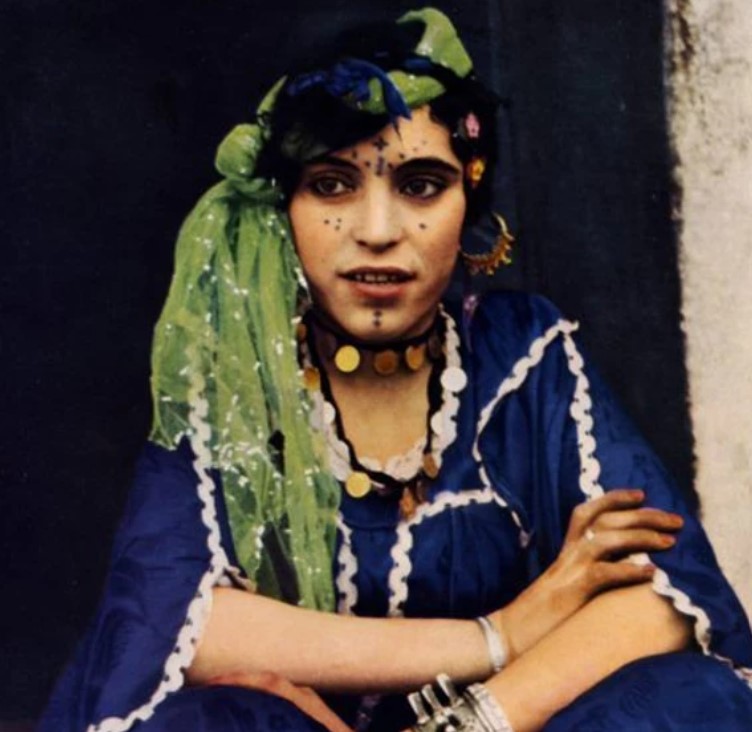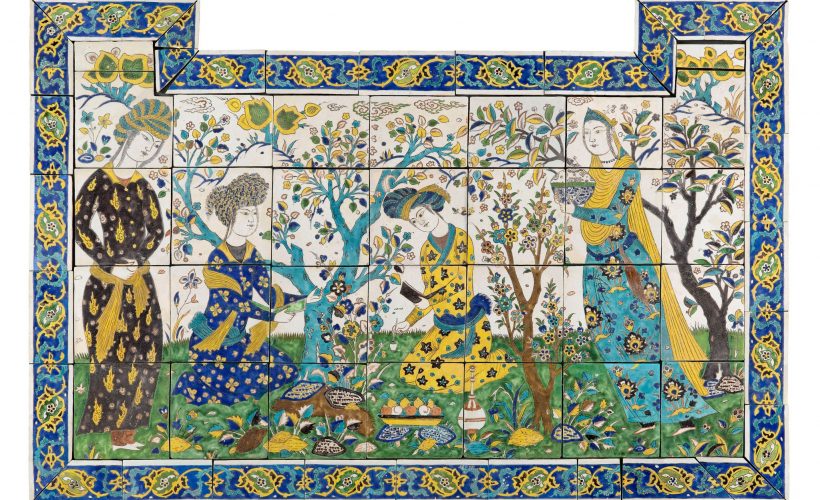History & Heritage
11.26.2021
What do Berber tattoos mean?

An ancestral practice Berber women are known for their keen sense of aesthetics. Their colorful traditional clothes and jewels easily stand out against the desert scenery of Maghreb. Berber tattoos complete this elegant and well-groomed look: these geometric signs in the shape of an arrow, a point, or a triangle, cover their faces, hands and […]
An ancestral practice
Berber women are known for their keen sense of aesthetics. Their colorful traditional clothes and jewels easily stand out against the desert scenery of Maghreb.
Berber tattoos complete this elegant and well-groomed look: these geometric signs in the shape of an arrow, a point, or a triangle, cover their faces, hands and ankles, the only uncovered parts of their bodies.

Traces of this tradition can be found since antiquity in Maghreb, which lasted until the 1950s, before the custom disappeared in favor of a more modern and globalized style. This is the reason why today, only the elderly women are adorned with these drawings on their skin, the last witnesses of this ancestral practice.
Signs of beauty and spirituality
But where does this tradition of tattooing on women’s bodies come from? The first reason is primarily aesthetic: these graphic drawings that adorn their skins are intended to remain there for life. It is a kind of natural and eternal jewel, which does not need to be removed, which blends into the skin and its natural wrinkles.
But these body designs also have an important symbolic dimension. Some marked an identity belonging to a group, a family, a region. Others signified the marital status of the woman who wears it: widow, single, or newly married. Still others represented animals symbolizing essential values in Berber culture, such as fertility, wisdom or goodness.

“When a woman was unlucky, she was given a tattoo,” says one of these women from a small village in southern Tunisia, in Myriam Mezclarte’s documentary on the topic. In the Berber custom, the tattoo was also a way to relieve the evils, to cure a misfortune, as a form of therapy.
Today, these aesthetic patterns are updated by several brands that are inspired by their creations, such as the Algerian brand Taszuri designer Rym, or by connaisseurs who do not hesitate to reuse these designs to be tattooed too.
See also
undefinedpopular

